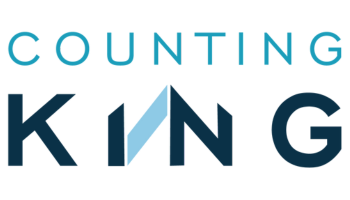In this blog we will be taking a look at what a business loan is, covering the advantages and disadvantages. We then go on to cover the next steps you should take if you think a business loan is right for your business. So let’s get started!
What is a business loan?
Business loans are financial tools designed to help entrepreneurs like you fund various aspects of your business. Whether you need capital for expansion, purchasing equipment, or even just managing cash flow, business loans can come to the rescue.
Business loan advantages
On the positive side, business loans can provide you with the necessary funds to grow your business and take advantage of new opportunities. They allow you to maintain control of your business and its profits, unlike taking on investors who may demand a portion of your ownership. Additionally, the interest paid on business loans is usually tax-deductible, which is definitely a nice perk.
Business loan disadvantages
However, like everything in life, business loans have their downsides too. The most obvious one is that you have to repay the loan amount, along with interest. This adds to your monthly expenses and can sometimes put strain on your cash flow. Furthermore, if you fail to make timely payments, it can negatively impact your credit score and make it harder to secure future financing.
How to compare your options
When comparing business loans, there are various types available, each with their own terms, interest rates, and repayment schedules. We recommend doing your research and comparing the options before making a decision. Take into account factors like interest rates, loan terms, fees, and any additional benefits or perks offered by the lender. This will help you find the loan that best aligns with your business needs and financial goals.
Selecting the right loan
Once you’ve done your homework and compared the options, it’s time to pick the best loan for your business. Consider factors such as the loan amount, interest rate, repayment terms, and any other specific requirements or preferences you may have. It’s important to choose a loan that fits comfortably within your business’s financial capabilities, so that you can repay it without putting undue stress on your operations.
Best practices when applying for a business loan
The first step when applying for loans is to ensure that your financial records are in order. Lenders typically require documentation like financial statements, tax returns, and bank statements. Having these ready will speed up the application process and increase your chances of approval. I also recommend maintaining a good credit score as it plays a significant role in the loan approval process. So you should always make sure to pay your bills on time and manage your credit responsibly.
Shop around
Another important tip is to shop around and compare offers from different lenders. Don’t settle for the first loan that comes your way. By exploring multiple options, you can find the best interest rates, terms, and overall value for your business.
Negotiate
Lastly, be prepared to negotiate with lenders. Don’t be afraid to ask for better terms or even negotiate the interest rate. Remember, it’s your business, and you have the right to advocate for yourself and secure the best deal possible.
About Counting King
Counting King is a national tax and funding practice that helps companies with their cash flow by sourcing grants, utilising government tax incentives or finance options such as business loans and more to help them scale and grow!
We focus on innovative companies who are seeking to expand and disrupt their respective industries which in turn will help the UK become a global leader and strengthen our economy.
If you would like advice from one of our specialists, please contact us via email at info@countingking.co.uk or call us on 0800 8100 030.

